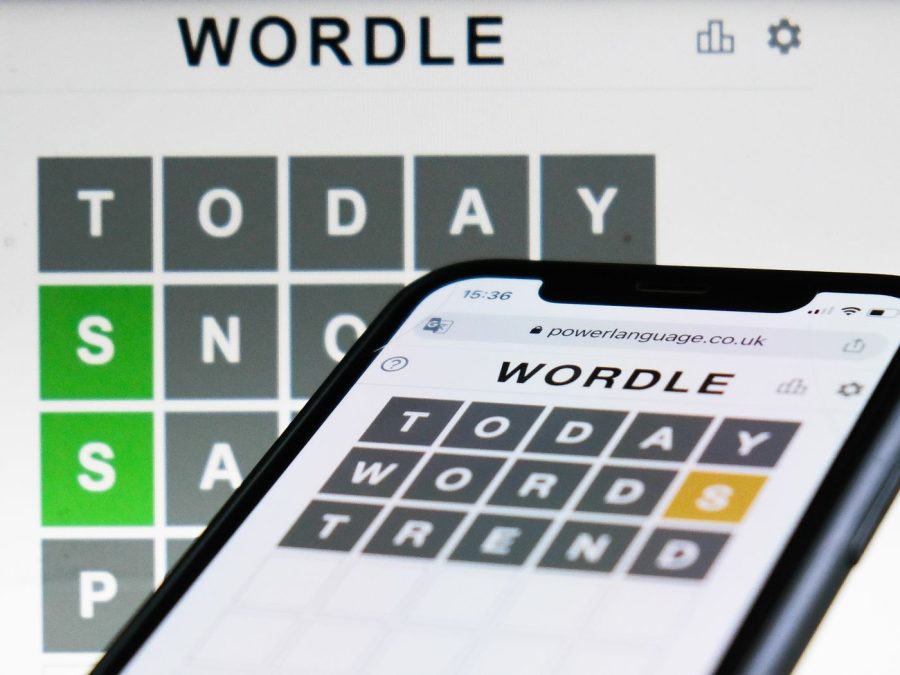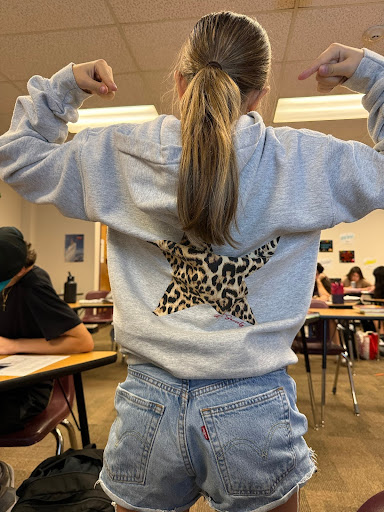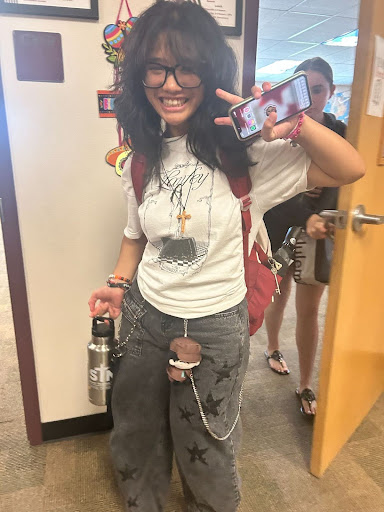The Widespread of Wordle
February 28, 2022
Crazy. Viral. Wacky. Think. Guess. Right. If you hold any interest in pop culture you may have been able to string a connection between the italicized words. 5-lettered, and maybe the answer to today’s most popular game that has swept the nation in the past month: Wordle.
Wordle, the new world sweepstake, is a fan favorite guessing game. The task: guess the daily issued 5 letter word. Everyday it is a renewed quest for the unknown word, where six attempts are the only limit to the game. Once a word is guessed, a color system reveals hints toward the hidden answer. A gray square tells that this letter is irrelevant and not included in the final guess. A yellow square comes from that respective letter being in the word, but not in the right spot. And finally, the best color for guessers is the green square, telling that this letter is in the correct spot.
The game has been propelled into success as it had just about 90 returning users on November 1st, then exploded to about 300,000 midway through this same month. Today, millions of players Google search the game everyday to compete with friends to see who can guess the word in the smallest amount of turns.
Fans of the game, ranging from high schoolers to grandparents have found a sort of joy in the promise of guessing for a new word every morning. It’s instantaneous success from the crowd who daily complete the game, has meant that game creator, Josh Wardle, a software engineer in Brooklyn, got the opportunity to sell the game to The New York Times. For a price in the low seven figures, Wardle likely felt that he couldn’t refuse this offer, and sold the game on January 31st, which he originally made simply as a gift for his partner.
The NY Times currently owns the rights to this popular website game and, for now, allows the game to remain a free daily participation. But, with this new ownership, the popular game has been faced with some new complaints for its challenging dynamic.
Words that were the answers when Wardle owned the game included: Tiger, Point, Robot, Mount, and Sugar. All of these words were taken from a receiving audience, and are typically easier guesses, but nonetheless, still a challenge. Words that are the answers now that The New York Times owns the game: Ulcer, Cynic, Aroma, Trove, and Caulk. See a slight difference? Players were lucky to get these words in the 4-6 guess range, unless they were a Scrabble wiz, encouraging critiques of the game to be forefront since the ownership change. Streaks of guessing the word everyday were abruptly broken and players were rightfully upset.
Though this game is produced under new management and has taken a bit of a challenging turn, it is still one of the joys and competitions of daily life. Wordle may have been more joyous prior to the NYT taking over this fun, lighthearted game and making it feel more like a spelling bee. At the end of the day, whether you start the game with Adieu (the word with the most vowels), have never gotten a single one right, have never played the game, or can guess the answer in under 3 turns, this game is enjoyed by all. New ownership should not take the joy of this game away, and in place of the complaints, take this challenge as a chance to grow your vocabulary and expand your critical thinking skills.
Wordle has found success in its connection with its audience and competitive dynamic that friend groups slurp up. Whether Wordle is a newfound gem you now start playing after this article or by the time you have made it this far you have already completed it first thing in the morning, Wordle has undoubtedly had an impact. Pop culture has seen this game’s rise, and that makes it worth playing as your new obsession for gaming. Play here at https://www.nytimes.com/games/wordle/index.html and strive for the seemingly impossible first guess accomplishment of getting the answer, that I still have yet to even come close to. Remember that this game can be challenging, but at the end of the day, still a joy to get to play.






